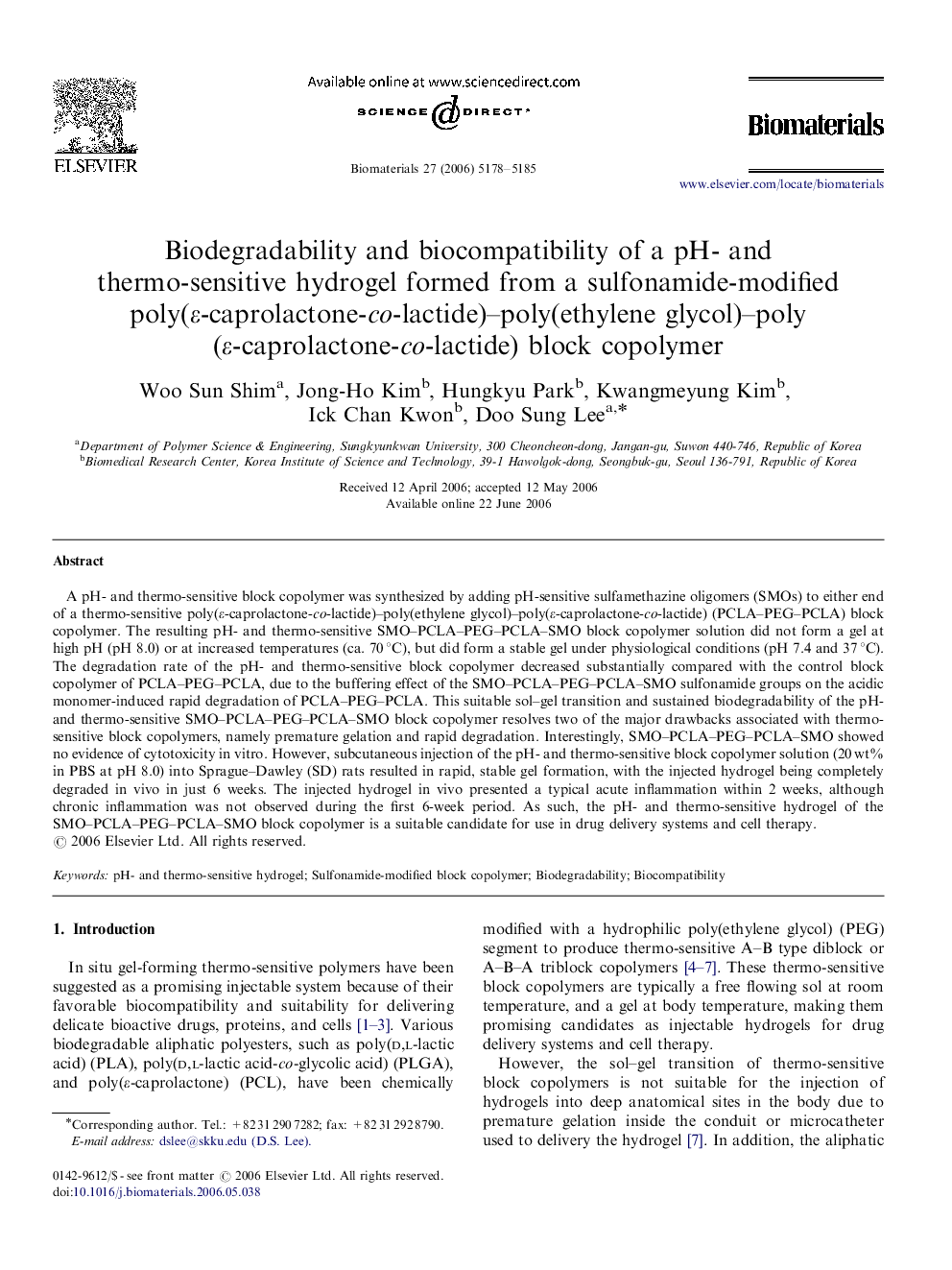| کد مقاله | کد نشریه | سال انتشار | مقاله انگلیسی | نسخه تمام متن |
|---|---|---|---|---|
| 11289 | 730 | 2006 | 8 صفحه PDF | دانلود رایگان |

A pH- and thermo-sensitive block copolymer was synthesized by adding pH-sensitive sulfamethazine oligomers (SMOs) to either end of a thermo-sensitive poly(ε-caprolactone-co-lactide)–poly(ethylene glycol)–poly(ε-caprolactone-co-lactide) (PCLA–PEG–PCLA) block copolymer. The resulting pH- and thermo-sensitive SMO–PCLA–PEG–PCLA–SMO block copolymer solution did not form a gel at high pH (pH 8.0) or at increased temperatures (ca. 70 °C), but did form a stable gel under physiological conditions (pH 7.4 and 37 °C). The degradation rate of the pH- and thermo-sensitive block copolymer decreased substantially compared with the control block copolymer of PCLA–PEG–PCLA, due to the buffering effect of the SMO–PCLA–PEG–PCLA–SMO sulfonamide groups on the acidic monomer-induced rapid degradation of PCLA–PEG–PCLA. This suitable sol–gel transition and sustained biodegradability of the pH- and thermo-sensitive SMO–PCLA–PEG–PCLA–SMO block copolymer resolves two of the major drawbacks associated with thermo-sensitive block copolymers, namely premature gelation and rapid degradation. Interestingly, SMO–PCLA–PEG–PCLA–SMO showed no evidence of cytotoxicity in vitro. However, subcutaneous injection of the pH- and thermo-sensitive block copolymer solution (20 wt% in PBS at pH 8.0) into Sprague–Dawley (SD) rats resulted in rapid, stable gel formation, with the injected hydrogel being completely degraded in vivo in just 6 weeks. The injected hydrogel in vivo presented a typical acute inflammation within 2 weeks, although chronic inflammation was not observed during the first 6-week period. As such, the pH- and thermo-sensitive hydrogel of the SMO–PCLA–PEG–PCLA–SMO block copolymer is a suitable candidate for use in drug delivery systems and cell therapy.
Journal: Biomaterials - Volume 27, Issue 30, October 2006, Pages 5178–5185